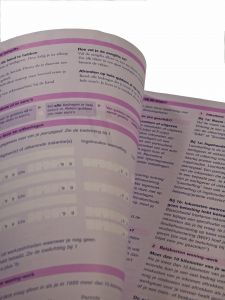It’s nowhere near April 15th, so why am I writing about tax issues for freelancers now? Because if you track your figures all through the year, you’ll know when you might need to take a deduction or how much to contribute to your SEP IRA by the end of the contribution period to avoid a nasty surprise on your income taxes for next year.
Didn’t know you could do that? Then you probably don’t know about these little issues, either…lucky for you we’re watching your financial back, eh? Don’t take any of this as advice from US, this information comes directly from the IRS official site:
Self-employment taxes break down like this: self-employed people pay 15.3% until your income pushes you into a higher bracket. The rate is in two parts–you pay 12.4% for social security plus 2.9% for Medicare.
Did you know you can deduct half your self-employment tax for the purpose of figuring your adjusted gross income? But you can ONLY take that deduction from your income tax, not your Self Employed tax. Are you confused yet?
Who pays Self Employment tax? Anybody who earns more than $400 from self employment activities. Also, any church employee who earned more than $108.28 must also pay SE tax.
Continue reading What You Might Not Know About Self Employment Taxes





 Quite frankly, moving sucks. It sucks even more for a freelance writer who–I’m talking about ME here–stupidly schedules a move both in the ass end of winter in Chicago AND before tax time. This guarantees that all my vital paperwork will go missing until I have to file an extension with the IRS.
Quite frankly, moving sucks. It sucks even more for a freelance writer who–I’m talking about ME here–stupidly schedules a move both in the ass end of winter in Chicago AND before tax time. This guarantees that all my vital paperwork will go missing until I have to file an extension with the IRS.